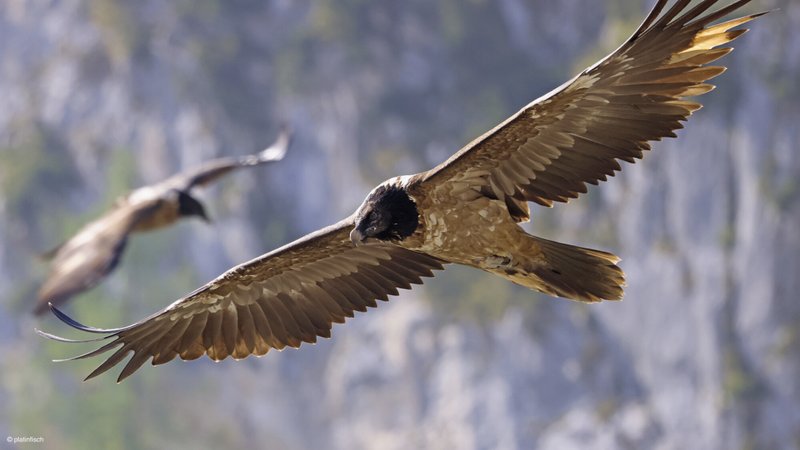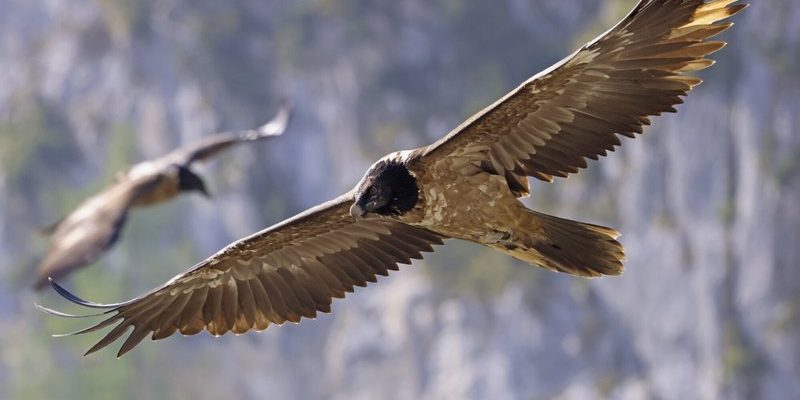
However, the bearded vulture faces challenges. Habitat loss, poisoning, and hunting have significantly reduced its populations across Europe, Asia, and Africa. So, what are people doing to help these magnificent creatures? Let’s dive into some of the conservation efforts that are aimed at protecting the bearded vulture and ensuring its survival for future generations.
Understanding the Bearded Vulture
The bearded vulture is unlike any other bird you might see soaring in the sky. These birds can be found in mountainous regions, often nesting on cliffs that offer them a good view of their hunting grounds. One of the most fascinating things about them is their diet. They mainly eat bones, which makes them key players in their ecosystems; they help clean up leftover carcasses and recycle nutrients back into the environment. Here’s the thing: they don’t just swallow bones whole. They actually drop them from great heights onto rocks to break them into smaller, digestible pieces. This unique behavior is a significant part of what makes them so special.
Despite their impressive skills, bearded vultures are experiencing severe population declines. The International Union for Conservation of Nature (IUCN) lists them as “Near Threatened,” meaning they are at risk of becoming endangered. Factors like human interference, poaching, and poisoning present serious threats to their survival. Understanding these challenges helps underline the importance of ongoing conservation efforts.
Critical Threats to the Bearded Vulture
If you’re wondering why bearded vultures are in trouble, let’s break down some of the main threats they face. First up is habitat loss. As humans expand their activities into mountainous areas, the nesting sites that bearded vultures rely on are disappearing. This loss can disrupt their breeding and feeding patterns, making it harder for them to thrive in the wild.
Another significant threat comes from poisoning. In many regions, left-over carcasses are poisoned to control predator populations, which can inadvertently harm the vultures that feed on them. This is a dangerous game for a bird that relies on scavenging for survival. When you think about it, it’s like trying to clean up a meal only to find that the leftovers are toxic. Not only is this harmful to bearded vultures, but it affects entire ecosystems as well.
Lastly, hunting poses a direct threat to these beautiful birds. In some areas, they are hunted for superstitious reasons or because people mistakenly believe they are dangerous to livestock. This misunderstanding highlights the need for education about the vital role vultures play in maintaining healthy ecosystems.
Successful Conservation Initiatives
Now that we’ve painted a picture of the challenges these birds face, it’s essential to focus on the positive. Several organizations and projects are dedicated to the conservation of the bearded vulture. One notable initiative is the Bearded Vulture Reintroduction Project, which aims to reestablish populations in areas where they have disappeared. This effort involves breeding bearded vultures in captivity and releasing them into suitable wild habitats. Imagine a bird that once soared over a mountain range returning to reclaim its territory; that’s what this project strives to achieve.
Another effective conservation strategy involves community engagement. Local communities play a crucial role in the success of conservation efforts. By educating people on the importance of the bearded vulture and its ecological role, organizations encourage communities to protect these birds and their habitats. Programs that promote sustainable farming practices also help reduce conflicts between humans and vultures, creating a more harmonious coexistence.
In addition, organizations like the Vulture Conservation Foundation work tirelessly to improve legal protections for these birds. By lobbying for stronger wildlife protection laws and challenging harmful practices, they provide the bearded vulture with a fighting chance.
Research and Monitoring Efforts
To successfully protect the bearded vulture, researchers actively monitor their populations and behaviors. This involves tracking individual birds using GPS technology, allowing scientists to gather valuable data on their movements and habitat use. Imagine being able to follow a bird’s journey as it soars through the mountains—you get insights into its lifestyle and the challenges it faces.
Research also helps uncover more about bearded vultures’ breeding habits. Scientists study nesting sites and feeding behavior to understand better what these birds need to thrive. This knowledge is essential for creating effective conservation plans. By understanding exactly what makes these birds tick, conservationists can tailor their efforts to meet their specific needs.
Tracking and monitoring also build a stronger case for conservation efforts. The more data there is, the easier it is to advocate for the changes needed to protect these magnificent creatures.
How You Can Help
Feeling inspired to lend a hand? There are several ways you can contribute to the conservation of bearded vultures, even if you don’t live near their habitats. Here are a few ideas:
- Spread Awareness: Talk about the bearded vulture with friends and family. Share what you’ve learned, and help educate others about the importance of this species and the threats it faces.
- Support Conservation Groups: Consider donating to or volunteering for organizations dedicated to vulture conservation. Your support can help fund critical initiatives.
- Responsible Tourism: If you’re traveling to regions where bearded vultures live, choose eco-friendly tour operators that prioritize sustainable wildlife watching.
- Advocate for Change: Get involved in local conservation efforts or campaigns aimed at protecting wildlife and their habitats. Every voice counts!
Honestly, even small actions can add up to big changes. By taking a proactive role, you can contribute to the ongoing efforts that are essential for the survival of not just the bearded vulture, but many other fascinating species too.
The future of the bearded vulture may seem uncertain, but thanks to dedicated conservationists, researchers, and everyday individuals like you, there’s hope. With each effort to protect their habitats, educate communities, and combat the threats they face, we can help ensure that these magnificent birds continue to grace our skies.
So the next time you hear a story about vultures, or perhaps even catch a glimpse of one soaring above you, remember the challenges they face and the ongoing efforts to protect them. Together, we can be a part of their journey towards survival and thrive in a world where bearded vultures can once again soar freely. After all, every bird counts in this beautiful tapestry of life we call Earth.

